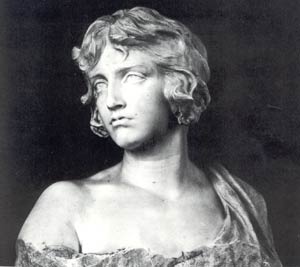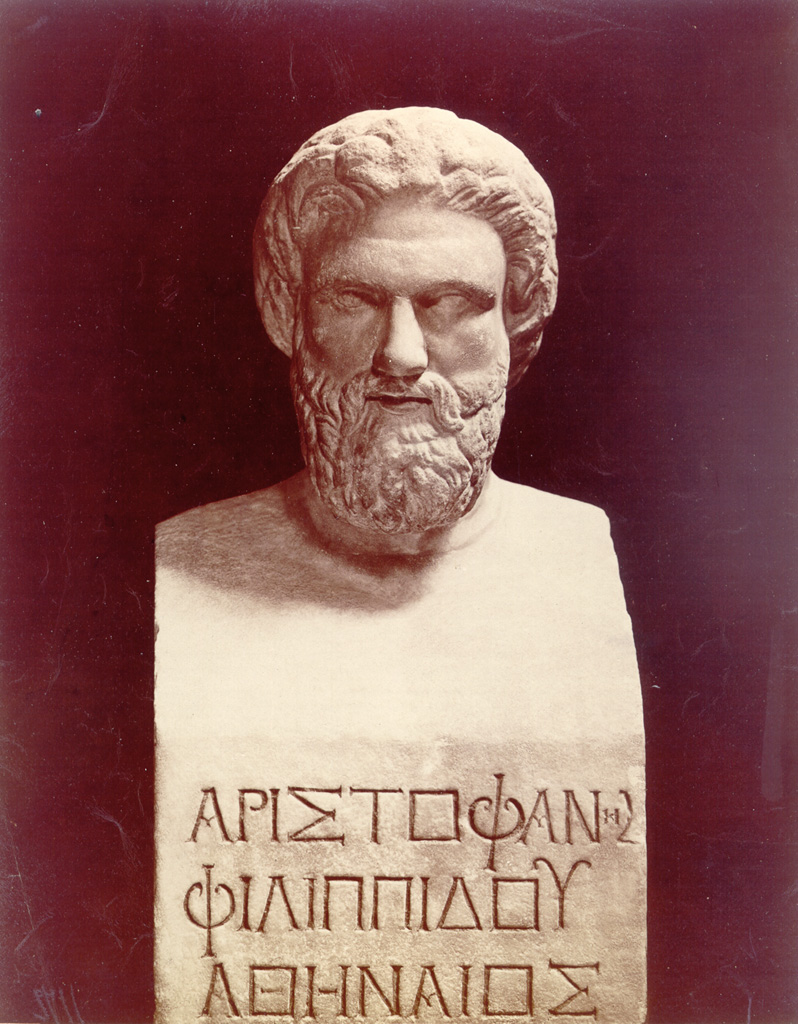Some accounts make Erinna a contemporary of Sappho
Greek Anthology 7.710
“Columns, and my Sirens, and you, sorrowful urn
Who holds Hades’ small portion of ash—
Say “hello” to those who walk by my grave,
Whether they happen to be citizens or from another town.
Tell them this too so they may know it:
this grave covered me when I was a bride,
My father used to call me Baukis and Tenos was my land
Tell them also that Erinna, my friend,
Etched this poem on my Tomb.”
Στᾶλαι, καὶ Σειρῆνες ἐμαί, καὶ πένθιμε κρωσσέ,
ὅστις ἔχεις Ἀΐδα τὰν ὀλίγαν σποδιάν,
τοῖς ἐμὸν ἐρχομένοισι παρ᾿ ἠρίον εἴπατε χαίρειν,
αἴτ᾿ ἀστοὶ τελέθωντ᾿, αἴθ᾿ ἑτέρας πόλιος·
χὤτι με νύμφαν εὖσαν ἔχει τάφος, εἴπατε καὶ τό·
χὤτι πατήρ μ᾿ ἐκάλει Βαυκίδα, χὤτι γένος
Τηνία, ὡς εἰδῶντι· καὶ ὅττι μοι ἁ συνεταιρὶς
Ἤρινν᾿ ἐν τύμβῳ γράμμ᾿ ἐχάραξε τόδε.
Greek Anthology 6.352
“These outlines come from tender hands: noble Prometheus
There are people whose talent is near to yours!
Whoever drew this girl so truly
If he added a voice, she would be Agatharkhis entirely.”
Ἐξ ἁπαλᾶν χειρῶν τάδε γράμματα· λῷστε Προμαθεῦ,
ἔντι καὶ ἄνθρωποι τὶν ὁμαλοὶ σοφίαν.
ταύταν γοῦν ἐτύμως τὰν παρθένον ὅστις ἔγραψεν,
αἰ καὐδὰν ποτέθηκ᾿, ἦς κ᾿ Ἀγαθαρχὶς ὅλα.







